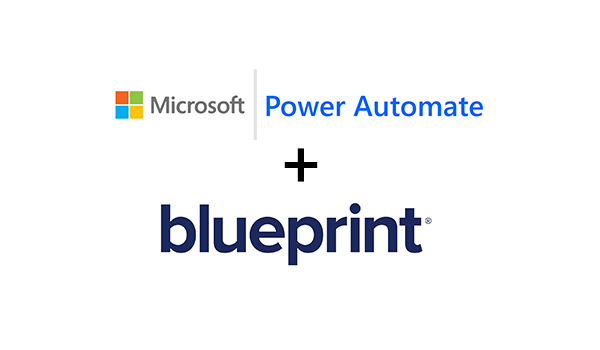Top Ten Predictions for the RPA Market in 2020
Toronto, Canada - January 21, 2020—Blueprint Systems, Inc. a global leader in digital process automation solutions, released today its Top 10 predictions for the robotic process automation market to look out for in 2020. Blueprint’s CEO, Dan Shimmerman, made these predictions by analyzing the current trends in the Robotic Process Automation (RPA) and automation market, as well as through dozens of interviews with Fortune 500 clients.
The basis for these 10 predictions has been based on the unprecedented and speedy growth of the RPA and automation market, and its promise to transform the enterprise. By 2022, it is expected that 72% of Fortune 1000 organizations will have adopted some form of business process automation. By 2027, near universal adoption is anticipated, based on current growth trajectories.
To drive enterprise automation excellence, large-scale organizations will need to dedicate significant budgets to supporting automation, developing automation centers of excellence (CoEs) and cultivate partnerships with technology vendors and global systems integrators.
Here are Blueprint’s Top 10 predictions for the RPA and automation market in 2020:
- Increasing enterprise-wide automation will become the top strategic priority for one quarter of Global 2000 companies.
- More than half of Fortune 500 organizations will have developed an Enterprise Automation Framework to help drive automation at scale. 20% of those companies will have established an Enterprise Automation Center of Excellence (CoE).
- Business Process Modeling technology will continue to converge with RPA vendors to ensure that automation efforts can properly scale.
- Instead of time savings, regulatory compliance, improved organizational productivity, and added business value will become the key performance metrics for automation business cases and ROI calculations.
- Over 98% of organizations who invest only in RPA technology will fail to scale their digital workforce because their automation expectations were not only misaligned with enterprises constraints, but they also lacked visibility into critical business processes.
- RPA reuse (building a Bot once and reusing it for multiple but similar business processes) will become more prevalent. Technology to facilitate RPA reuse will become more popular.
- As enterprises continue to struggle scaling RPA across a broader spectrum of business units, the established RPA vendors will see slowdowns in growth, and become more reliant on partnerships with global SIs and technology vendors seen as complementary to their offerings.
- RPA market consolidation will commence. Smaller RPA vendors who have struggled to maintain hyper-growth trajectories will get acquired by the larger, more established vendors.
- Similar to blockchain and AI, RPA will start to seep into mainstream vernacular.
- Smart Process Automation (SPA), or the combination of the best of machine learning, AI, RPA, cloud, big data and humans, will represent the future digital workforce.
About Blueprint:
Blueprint Software Systems is a global software company and leading provider of digital process discovery and modeling solutions. Blueprint’s Enterprise Automation Suite helps organizations automate complex, end-to-end business processes, reduce manual work and errors, minimize cost, and ensure regulatory compliance across their digital workforce. Blueprint combines unique process discovery, visual business process modeling, process automation, and analytics – all within a centralized collaboration hub. By doing this, Blueprint empowers organizations to rapidly optimize, transform and scale process automation initiatives across the enterprise, mitigate compliance risk, and maximize business value. Blueprint’s solutions are widely deployed by Fortune 1000 organizations spanning dozens of industries.
Share this
Recent Stories

Blueprint partners with Microsoft to unlock the full potential of new RPA desktop solution, Power Automate

The Challenges of Implementing RPA Enterprise Software



